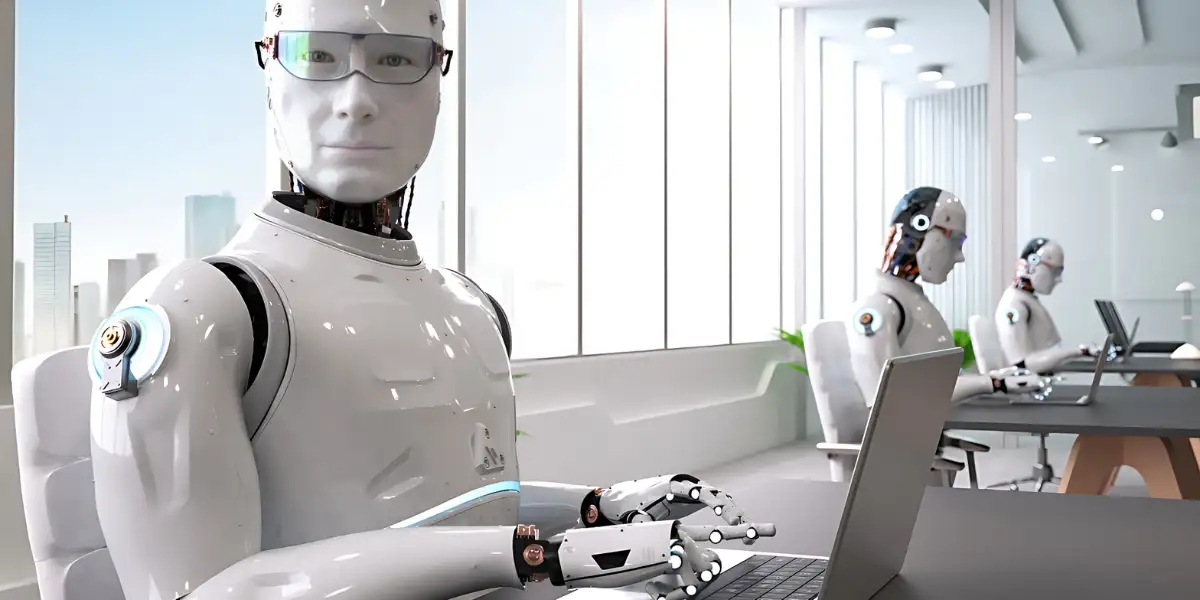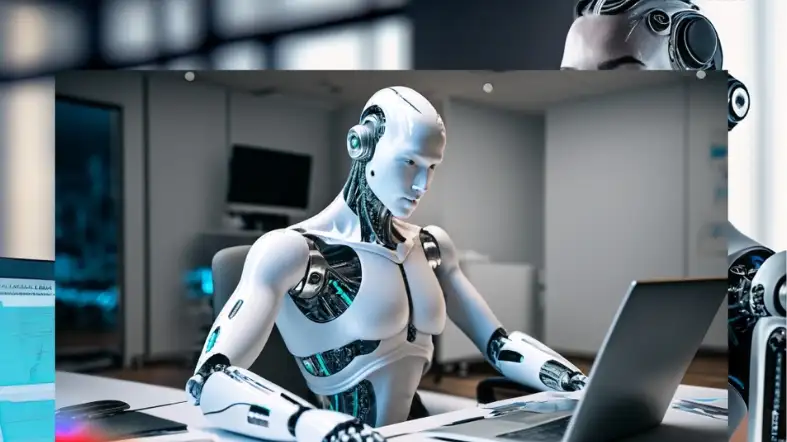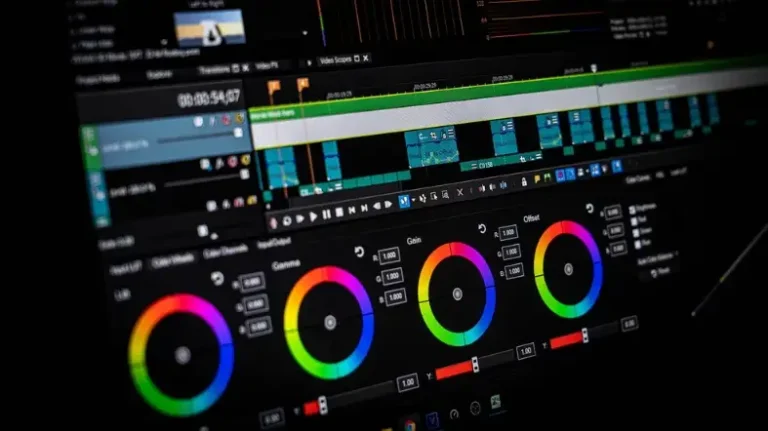Concerns have been raised regarding the future of chartered accountants as machines become increasingly capable of conducting tasks that were once the exclusive purview of humans.
In this blog post, we will examine:
- whether AI will replace chartered accountants,
- the potential impact of this technology on the accounting profession,
- and the function of the business accountant in the development of AI in accounting.

Will AI Replace Chartered Accountants?
No, AI will not fully replace chartered accountants. While it can automate certain tasks like data entry and analysis, it lacks critical thinking, decision-making skills, and the human touch required for complex financial analysis and personalized service.
Accountants can adapt by incorporating AI tools and expanding their high-level strategic planning and analysis skill sets.
What Are The Impacts Of AI On The Future Of The Chartered Accountant Job Sector?
Increased Efficiency
AI can help accountants automate repetitive and time-consuming tasks, such as data entry, reconciliations, and audit testing.
By automating these tasks, AI can free up more time for accountants to focus on advisory roles requiring judgment, critical thinking, and communication skills.
AI can also help accountants increase efficiency by reducing errors and allowing them to work faster and more accurately.
Improved Accuracy
AI’s capacity to accurately and swiftly evaluate enormous volumes of data is one of its key advantages.
AI can assist accountants in seeing trends, patterns, and anomalies that might not be obvious to the naked eye by automating processes like data analysis.
Accountants can use this to make better decisions and give their clients’ or management teams financial reports that are more accurate.
New Opportunities and Skills

While AI may be perceived as a threat to job security, it is likely that the role of the Chartered Accountant will evolve to work alongside AI technologies, creating new opportunities and skills.
Accountants need to understand how AI will change the way they work and what they do to prepare themselves for this evolution.
Learning about the use of AI in accounting and its impact on the role of the Chartered Accountant can only serve to benefit them in the future.
AI-Assisted Auditing
AI can increase audit quality by allowing auditors to ask more questions, improving efficiency, and providing more insight.
AI can analyze large amounts of data, identify patterns and anomalies, and suggest areas that require further investigation.
This can help auditors identify potential risks and areas of concern, improving audit quality and increasing confidence in financial reporting.
Deep Learning and Algorithms
Machine learning and deep learning are the two categories of analytics used in AI.
Algorithms that learn from experience and improve over time are called machine learning.
On the other hand, deep learning is a more advanced form of machine learning that models how the human brain functions and develops fresh data patterns for decision-making.
Both deep learning and machine learning can assist accountants in accurately and quickly analyzing and interpreting massive amounts of data.
Changing Job Roles and Responsibilities
AI will not eliminate the need for Chartered Accountants but will change their job roles and responsibilities.
Chartered Accountants will need to develop new skills, such as data analysis, programming, and understanding AI technology, to stay relevant in the industry.
They will also need to adapt to the new AI-powered accounting software and tools, learn how to interpret and communicate the data generated by these tools and provide strategic financial advice based on their analysis.
Improved Customer Service
With the help of AI, Chartered Accountants can provide better customer service to their clients.
AI-powered tools can collect customer behavior and preferences data, allowing Chartered Accountants to provide personalized financial advice and recommendations.
Chatbots can also be used to answer customer inquiries, freeing up Chartered Accountants’ time to focus on more complex tasks.
Additionally, AI-powered fraud detection tools can detect and prevent fraudulent activities, protecting clients’ financial information and improving their trust in Chartered Accountants.
Increased Demand for Chartered Accountants
The demand for Chartered Accountants with advanced abilities in data analysis, programming, and understanding AI technology will rise even though AI may automate some accounting activities.
In order to give customers strategic financial advice, chartered accountants will need to comprehend and explain the data produced by AI-powered accounting software and tools.
Chartered Accountants will need to stay current with the most recent technology and consistently expand their skills to match the needs of the job as AI continues to advance and evolve.
How Will The Chartered Accountant Need To Evolve To Keep Pace With AI Advancements?

Recognize the role of AI in accounting.
Artificial Intelligence (AI) has revolutionized how businesses operate, and accounting is no exception.
As a business accountant, you need to recognize AI’s role in accounting and its impact on your role.
AI has enabled automating various accounting tasks such as data entry, bookkeeping, and financial analysis.
AI can analyze large amounts of financial data and provide insights that would be difficult to uncover manually.
By understanding the role of AI, you can identify how it can complement your skills and improve your efficiency.
Develop your technological skills.
You need to develop your technological skills to keep pace with AI advancements. You need to be comfortable with using accounting software and tools that incorporate AI.
This can include software for automation, data visualization, and data analysis.
By developing your technological skills, you can effectively use these tools to automate repetitive tasks and focus on more complex accounting functions.
Embrace continuous learning
You must accept constant learning if you want to remain relevant in the accounting field.
The most recent technical developments in accounting and finance must be kept up with.
This can involve participating in online forums and communities, reading industry publications and research papers, and attending conferences, webinars, and workshops.
You can keep up with trends and give your clients useful insights by continuing to learn.
Focus on analytical skills.
While AI can automate many accounting procedures, it cannot take the place of analytical abilities. You should put a lot of effort into improving your analytical abilities as a corporate accountant.
This involves the capacity for critical thought, problem-solving, and judgment. You must possess the ability to decipher financial data and offer insights that can assist firms in making wise decisions.
You can go above and beyond what AI can deliver to your clients by putting an emphasis on analytical abilities.
Enhance communication skills
AI can analyze financial data and provide insights, but it cannot communicate those insights effectively.
As a business accountant, you need to enhance your communication skills to convey insights to clients effectively.
This includes developing skills in written and verbal communication and data visualization.
By enhancing your communication skills, you can effectively communicate financial insights to clients and help them make informed decisions.
Embrace the role of a strategic advisor.
As AI takes over various accounting tasks, the role of a business accountant is shifting toward that of a strategic advisor.
You must embrace this role and provide value to clients beyond traditional accounting functions.
This includes providing insights on business strategy, financial planning, and risk management.
By embracing the strategic advisor role, you can provide value to clients and stay relevant in a rapidly changing profession.
FAQs
Can AI Replace Accountants For Process-Driven Or Repetitive Bookkeeping Tasks?
Yes, AI can reduce the need for accountants to perform process-driven or repetitive bookkeeping tasks.
This can free up accountants’ time to focus on higher-value accounting tasks like analysis and strategic planning.
Will AI Improve The Accuracy Of Accounting Work?
Yes, AI can help improve the accuracy of accounting work by reducing the risk of human error.
However, it is important to note that AI still requires proper training and oversight by qualified professionals to ensure accurate results.
Can AI Replace Human Intuition In Accounting?
No, AI cannot replace human intuition in accounting. While AI can help with tasks such as fraud detection and risk analysis, tasks will always require human intuition.
Will AI Reduce The Need For Chartered Accountants?
AI may reduce the need for chartered accountants to perform certain tasks, but it is unlikely to replace the need for human professionals in the field completely.
Accountants can leverage AI to improve efficiency and accuracy, allowing them to focus on more valuable tasks.
Can AI Replicate The Strategic Advice And Consultation Provided By Chartered Accountants?
No, AI cannot replicate chartered accountants’ strategic advice and consultation.
While AI can provide data-driven insights and automate certain tasks, it cannot replace the human expertise and judgment that chartered accountants bring to their work.
Conclusion
The rise of AI technology has undoubtedly transformed the accounting industry.
While some basic accounting tasks may be automated, AI can never replace a human chartered accountant’s unique insights, strategic thinking, and decision-making skills.
As AI continues to evolve, it will serve as a powerful tool to support the work of accountants, allowing them to focus on high-level analysis and providing value-added services to clients.
The future of accounting is not AI replacing humans but rather humans leveraging AI to enhance their capabilities and deliver greater value to their clients.





